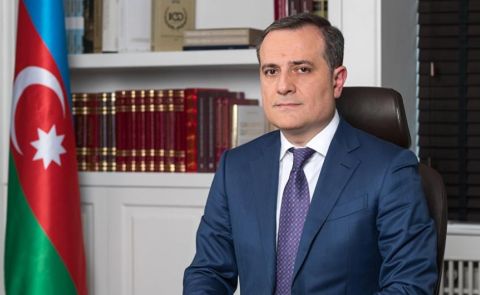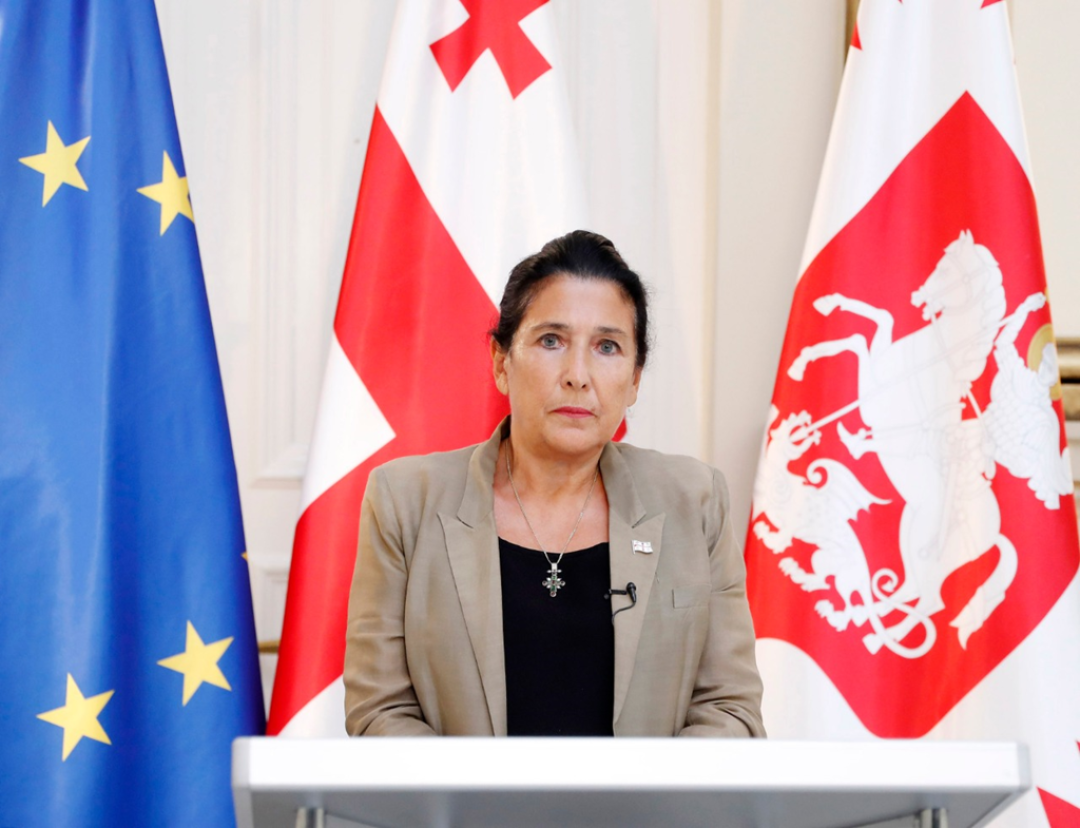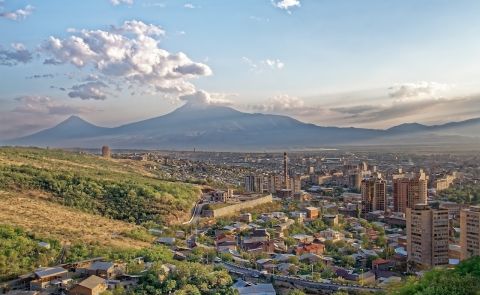
Georgian President Outlines Strategy for Post-Election Period

On November 22, 2024, Georgian President Salome Zourabichvili gave an interview to Mtavari TV, addressing Georgia’s ongoing political crisis and sharing her perspective on the nation’s path forward. She voiced concerns about what she described as a “stolen election” and reaffirmed her commitment to opposing the trajectory of the Georgian Dream (GD) government, which she characterized as a threat to Georgia’s independence and democratic future.
President Zourabichvili urged Georgians not to lose hope, despite the difficulties of confronting a government she described as increasingly authoritarian. She emphasized the importance of rejecting the results of the disputed election, which she alleged was marred by widespread fraud. Drawing a parallel to her emigrant family’s unwavering belief in Georgia’s independence, she cautioned against yielding to what she called GD’s efforts to consolidate power, likening the situation to a return to Russian-style governance.
Zourabichvili noted that the Western democratic community has refused to recognize GD’s claimed election victory. She interpreted the absence of congratulatory messages from major international actors, including the United States, as a clear sign that the results lack international legitimacy.
Regarding the opposition’s plans to renounce their parliamentary mandates, Zourabichvili dismissed comparisons to the 2020 crisis, arguing that the current situation is far more severe. She stated that entering the parliament under these conditions would amount to aligning with Russian interests. Highlighting GD’s increasing isolation, she asserted that with no opposition in parliament, the government stands alone—an outcome that, in her view, undermines its legitimacy.
Zourabichvili also criticized GD’s domination over state institutions, describing the government as a single-party system. She pointed to GD’s efforts to ensure that the next president would be entirely subordinate to its interests, alongside its control over the judiciary, anti-corruption agencies, and regulatory bodies. She remarked, “What is this called? Russia.”
The President warned of an impending financial and economic crisis, exacerbated by Georgia’s lack of an IMF program and dwindling national reserves. She argued that GD’s growing isolation from Western partners would only deepen the crisis, leaving Georgia increasingly vulnerable. Zourabichvili predicted that this combination of internal and external isolation would eventually necessitate new elections.
Zourabichvili acknowledged that EU sanctions are constrained by the bloc’s consensus-based decision-making process, but she pointed out that U.S. sanctions remain a viable possibility. She noted that ongoing discussions between the U.S. and EU could lead to measures targeting individuals deemed responsible for Georgia’s current trajectory, as well as restrictions on financial aid critical to Georgia’s budget.
While expressing skepticism that GD’s ultimate goal is alignment with Russia, she warned that the party’s actions closely resemble a “Russian scenario.” She criticized GD for reintroducing the controversial “agents’ law,” describing it as a tactic designed to distract and demoralize the public.
Despite the challenges, Zourabichvili expressed optimism about Georgia’s future. She envisioned new elections, the formation of a technical government, and eventually a coalition government as key steps toward restoring democracy. She reiterated her belief in Georgia’s European destiny and called on the Constitutional Court to uphold democratic principles, urging its judges to act as heroes rather than traitors.
See Also


Nordic-Baltic Delegation Meets Armenian Leaders to Discuss Regional Cooperation and Peace

Azerbaijan Strengthens Energy Partnerships with Multiple Countries

BP Strengthens Presence in Azerbaijan’s Offshore Energy Sector

Netanyahu’s Letter to Aliyev: Mutual Trust, Solidarity Following Hamas Attacks, Facilitating Dialogue Between Israel and Türkiye

